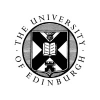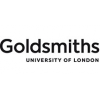Snabbfakta
-
- Midlothian
Ansök senast: 2024-08-02
Research Associate in Sensor Data & Resource Management for Autonomous Airborne Platforms
UE07 £39,347.00 - £46,974.00
School of Engineering, College of Science & Engineering
Fixed Term up to 24 months
Full time 35 Hours per week
The Opportunity:
This is an exciting opportunity for the Research Associate to contribute to the EPSRC Smart Products Made Smarter prosperity partnership within the Institute of Imaging, Data, and Communications at the University of Edinburgh, which is funded by EPSRC and in collaboration with colleagues at Heriot-Watt University and Leonardo.
The successful candidate will work on novel techniques and verifiable frameworks for sensor task management and distributed sensing on autonomous airborne platforms. Solutions will build upon data captured and fused from radar and electro-optic and infra-red (EOIR) sensors on single or multiple platforms. Distributed sensor networks and distributed multi-sensor fusion techniques address key challenges in intelligence, surveillance, target acquisition, and reconnaissance, and has timely and unique applications across a range of defence and civilian applications, including search and rescue, law enforcement, and remote sensing.
This role is UE07 and is available on a fixed term basis for up to 24 months.
A full list of main responsibilities and the knowledge, skills and experience required for the role can be found in the full job description below.
Your skills and attributes for success:
Please apply including a cover letter, a research statement, and CV
Research Associate (RA) Opportunities in Design and Manufacturing Processes for Advanced Sensing Systems for Security and Defence Applications.
Smart Products Made Smarter, a collaboration with Heriot-Watt University, University of Edinburgh and Leonardo is pleased to invite applications for a Research Associate to work as part of a leading team of experts.
This grant, sponsored by the , is a collaboration between academia and Leonardo. There are currently Research Associate opportunities available to work on diverse topics as part of this collaborative team. The work will involve strong links with industry.
The research addresses a broad range of challenges. These challenges exemplify future product lifecycle management from smart concept, design, development and manufacture to enhanced end-user capability, united by a common digital thread to enable smarter products to be made smarter. Each challenge area has clearly identified initial research themes and associated research challenges to be addressed and these are indicated below:
Challenge 1 (C1) the Making challenge: To create new hybrid manufacturing processes, that combine multiple Additive Manufacturing (AM) process with precision machining and coating processes to create components that disrupt the traditional functional trade-offs of Size, Weight and Power (SWaP) through techniques such as varying the material properties within a part and harnessing the digital production of optical components.
Challenge 2 (C2) the Manipulation challenge: To create new handling processes that fully exploit the digital data flows which define custom components whose shape and functionality is tailored to production by dexterous, highly adaptable robots that are programmed dynamically.
Challenge 3 (C3) the Computation challenge: To create new signal processing & machine learning methodologies that enable intelligent, digital & connected sensor products while mitigating the data deluge from the multiple sensors produced by Leonardo operating across the EM spectrum.
The post is in collaboration with the Defence Sector and therefore the successful candidate will be subject to specific security checks and ratification.












